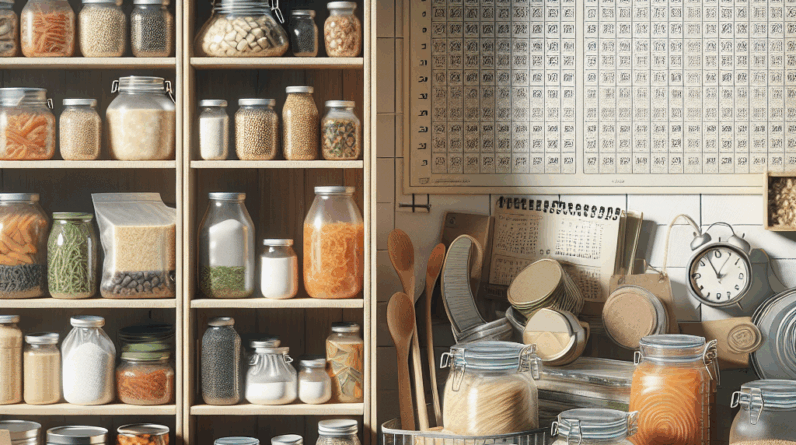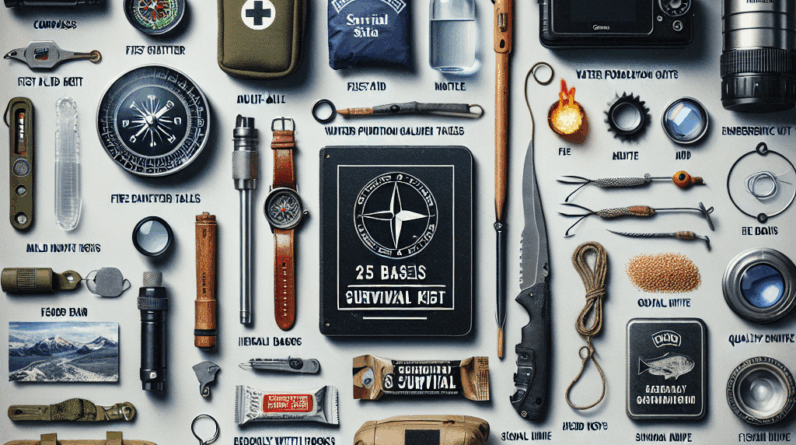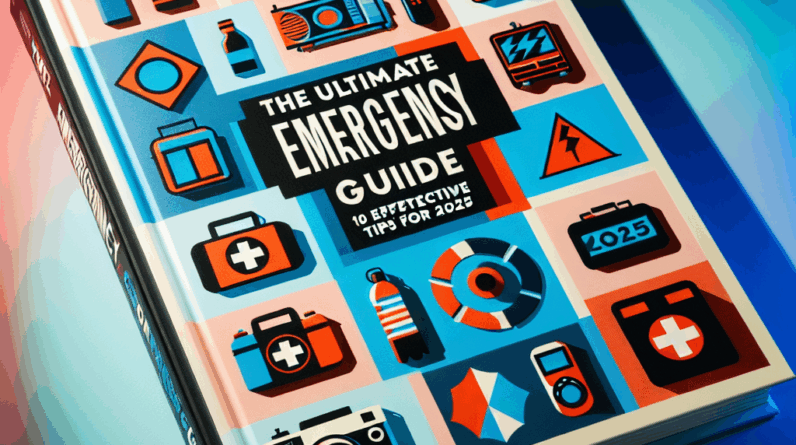Discover essential strategies to enhance your safety and preparedness for emergencies in the upcoming years. This comprehensive guide provides crucial tips to ensure you and your family are prepared for any unforeseen events.
Create a Comprehensive Family Emergency Plan
With the increasing occurrences of natural disasters and unexpected crises, having a robust family emergency plan is crucial. Such a plan ensures that every family member knows their responsibilities, which significantly reduces confusion and panic during emergencies. Studies indicate families with a structured plan are notably more successful in managing emergency situations. Discussing potential emergencies like earthquakes and floods with your family and setting up clear communication and evacuation strategies are essential steps.
For instance, the floods in 2024 demonstrated the chaos that can ensue without a prepared plan. Proactively developing a family emergency plan can dramatically enhance your family’s safety during such incidents.
Steps to Develop an Effective Emergency Plan
Identify potential emergencies that could affect your area and decide on safe meeting points both inside and outside your neighborhood. It’s vital that all family members understand how to contact one another if conventional communication methods fail. Assign specific responsibilities, such as who is in charge of grabbing the emergency kit or securing pets. Regularly practice your plan to ensure it functions smoothly in an actual emergency, and keep a visible copy in your home while sharing it with relatives or trusted neighbors.
Build a Robust Emergency Kit
A well-stocked emergency kit is a lifeline during crises. As we move into 2025, ensure your kit is equipped to support your family for at least 72 hours. Essential items include drinking water, non-perishable food, a first aid kit, necessary medications, a flashlight with extra batteries, and hygiene products. Enhance your kit with tools like solar chargers and a portable radio to maintain communication and stay informed.
Recent surveys show that only a small percentage of households have a fully-equipped emergency kit, highlighting the importance of being better prepared.
Maintain Your Emergency Kit Effectively
Store your emergency supplies in a convenient, known location and use sturdy, waterproof containers to protect them. Label everything clearly and keep an inventory list to check off items as you use or replace them. Regular updates and practice using the supplies will ensure you are always prepared for a sudden emergency.
Stay Informed with Accurate Weather Alerts
With the unpredictability of weather patterns in 2025, staying informed through reliable sources is more important than ever. Use apps and services that provide real-time weather updates and alerts to ensure you can respond quickly to potential dangers. Technologies that send direct alerts to smartphones and other devices are vital for immediate action.
Best Tools for Weather Alerts
Choose applications and devices that offer customizable alerts for your specific location. Weather radios from NOAA are excellent for continuous information, especially when internet service is unavailable. Integrating these tools into your emergency preparedness plan can significantly increase your ability to respond effectively to severe weather.
Secure Your Home Against Natural Disasters
Strengthen your home to resist various natural threats. Reinforce areas prone to damage like windows, doors, and roofs. Consider professional upgrades like storm shutters or impact-resistant windows to mitigate potential damage. For areas prone to flooding, elevate critical utilities and install sump pumps.
Annual maintenance and proactive upgrades can prevent major damage and help your family stay safe during severe conditions.
Learn Basic First Aid
Basic first aid skills are indispensable in emergency situations where immediate medical response is delayed. Knowing how to perform CPR, treat wounds, and manage other medical emergencies can save lives. Many organizations offer first aid training sessions that can prepare you to assist in a crisis effectively.
Establish Reliable Emergency Communication Methods
Ensure you have multiple ways to communicate with family and friends during an emergency. In addition to digital communication tools, consider alternative options like satellite phones or ham radios, which can be crucial when standard networks are down.
Practice using these communication methods regularly to ensure everyone is familiar with them in case of an emergency.
Practice Emergency Drills Regularly
Conduct regular drills to ensure everyone knows what to do when an emergency occurs. Simulate various scenarios and include all members of your household. Review and adjust your emergency plans based on the outcomes of these drills to address any weaknesses.
Keep Important Documents Safe and Accessible
Secure all critical documents such as identification papers, legal documents, and insurance policies. Use waterproof and fire-resistant containers for physical copies and secure cloud storage for digital copies. Regular updates and easy accessibility can expedite recovery and aid in efficient management post-disaster.
Stay Connected with Community Resources
Engage with local emergency services, community centers, and support networks to enhance your overall preparedness. Participate in local safety programs and initiatives to stay informed about the resources available in your community. A strong support network can be invaluable during and after a disaster.
Stay Updated on Emerging Emergency Trends
Keep abreast of the latest developments in emergency preparedness. Subscribe to relevant publications, attend workshops, and follow trusted authorities to stay informed about new threats and the latest safety protocols. Staying informed enables you to adapt your emergency plans to current conditions effectively.
Frequently Asked Questions
1. What are the most important emergency preparedness tips for 2025?
The key tips include having an updated emergency plan, a well-maintained emergency kit, reliable communication methods, and regular practice drills. It’s also crucial to keep important documents safe and stay connected with your community.
2. How often should I update my emergency preparedness plan?
It’s advisable to review and update your emergency plans annually or following any significant changes in your living conditions or local risk factors.
3. What should I include in an emergency kit for 2025?
Your kit should include basic supplies such as water, food, a first aid kit, medications, and personal hygiene items. Also, consider tech items like solar chargers and emergency radios.
4. How can I stay informed about new emergency trends?
Regularly consult with government and professional sources like FEMA and local emergency management authorities. Also, consider subscribing to updates and alerts from trusted online platforms.
5. Why are emergency preparedness tips important for individuals and families?
Proper preparedness can greatly reduce the impact of emergencies by ensuring quick and efficient responses, thereby saving lives and minimizing damage.
Conclusion
As we look towards 2025, being proactive with your emergency preparedness is crucial. By implementing these tips, you ensure that you and your family can face any emergency confidently and safely. Continually adapt and revise your strategies to meet the latest challenges and protect your loved ones effectively.




